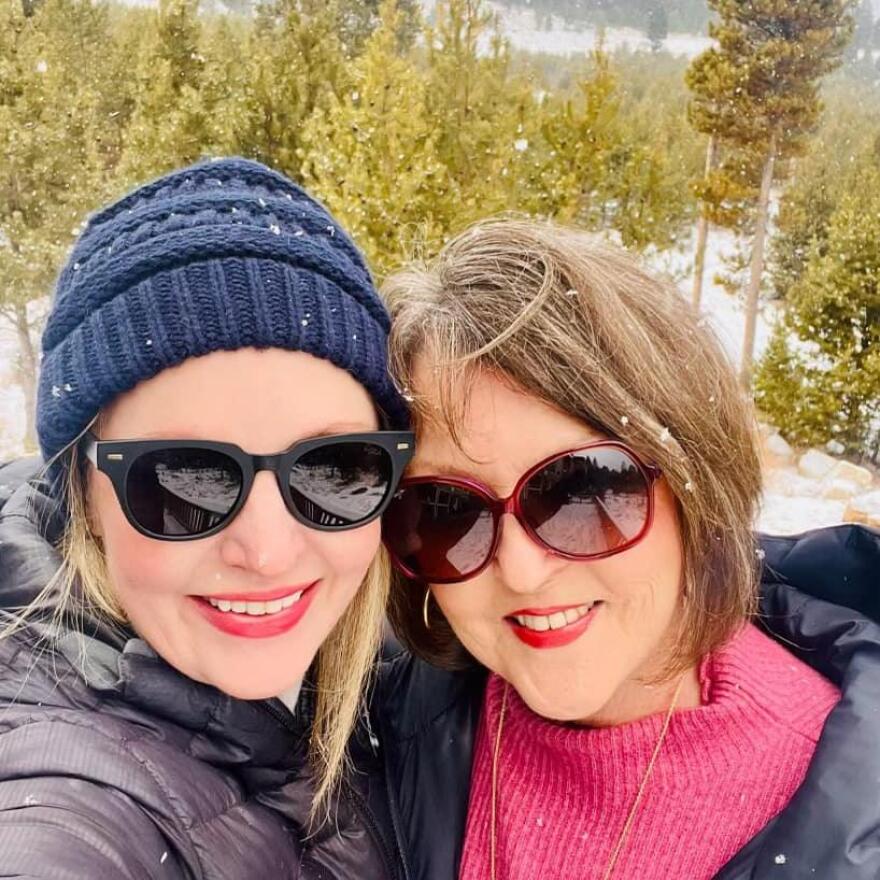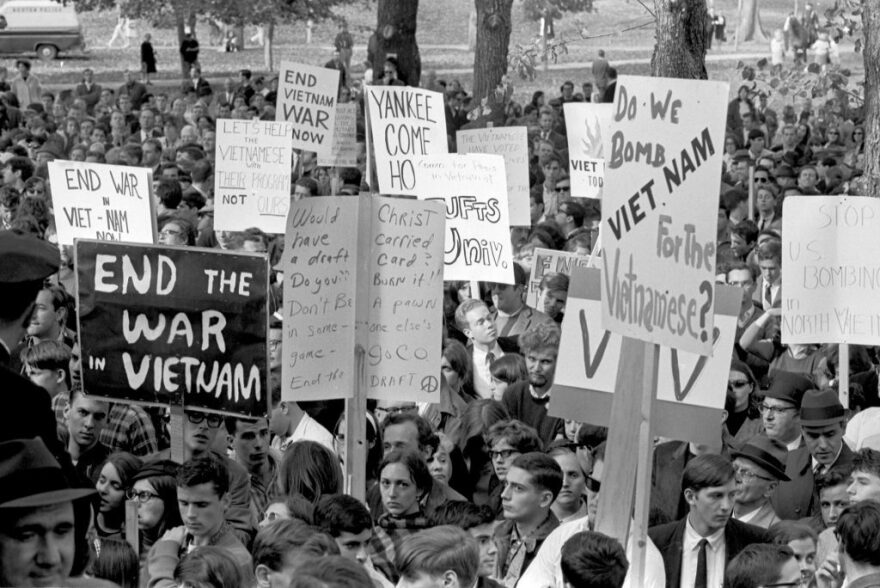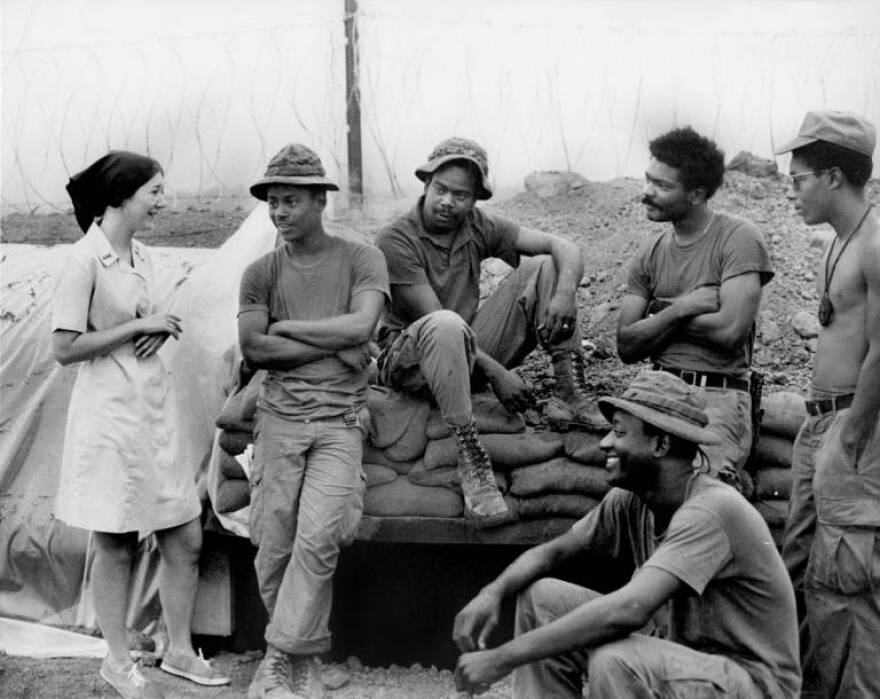In the Vietnam War that ended 50 years ago, about 2.7 million men and women served in the various branches of the military. To be sure, most of them were men. But the war affected many women, too.
Sharon Burman of Missoula grew up in a mostly white, rural town in Illinois, but when she stepped into her classroom at Coleman Kaserne Army Base, her small world turned on its head.
"I'm not proud to say I didn't know anybody from a different background from my own, and I mean that ethnically. So I walked into class my first day and there were 35 men in my classroom, all but two of them were Black, and the other two were Hispanic. My knees felt weak, and I thought, 'oh, I don't think I can do this'," said Burman
She was just out of college and took a job teaching high school equivalency classes in Germany. Most of her students were about to be deployed to Vietnam. First, they had to get their GEDs, their general education diplomas.
"They were scared, they were young, they were away from home for the first time in their lives. They knew where they were headed. Many of them couldn't even read and they had been drafted," said Burman

The experience changed her and it also changed how she felt about authority and about America's involvement in Vietnam.
"When I say it changed my life, I no longer trusted my government. I chose to get a job at an inne- city school, because education was the key to everything. So I would never have been open to that, I don't think, had I not had that experience. So in some ways for me personally, it was a wonderful experience," Burman said.
For Sharon, the Vietnam War became a line of demarcation. It was always going to be life before and life after. While Sharon never worked in Vietnam, the effects of working with these men still left an impact on the rest of her life. Women and men in the U. S. were heavily involved in shouting about their own distrust in the government.
The protest movement against the war in Vietnam drew tens of thousands to march in Washington, D.C., and in cities and towns throughout the U.S. Taylor Pape, who lives in Missoula, grew up in Pittsburgh, Pennsylvania.
"I actually played hooky from high school for my first anti-war demonstration, and never told my parents what I had done that afternoon," said Pape.

She went to college at Boston University. This was when most colleges were confronting the growing protest movement. One of Pape's professors was the famous historian Howard Zinn.
"A lot of times he didn't come to class because he was in jail. And we protested pretty vigorously, uh, in Boston. A lot of students also went down to the giant protest in Washington," said Pape.
Pape was set to graduate in 1970, but then the protest at Kent State in Ohio got violent and BU got scared.
"Boston University decided to shut down completely. They closed the dorms, they sent everyone home, we didn't have finals, we didn't have a graduation ceremony, and we had all the time in the world on our hands to protest even more, even though they thought they were sending us home," Pape said.
Pape ended up with a long term partner, Haddon Hufford, who served in Vietnam. He was a soldier whose job it was to film everything he could there. Pape's views over the years have changed, especially when it comes to the anti-war movement.
"I just could see suffering on every side. The children, the, the, the massacres, the soldiers. People coming back in terrible straits, people coming back who were never going to be able to walk again or whose mothers had to look after them for the rest of their mother's lives or a lot of suffering happened, and I'm not sure that my attendance at a protest made any difference," said Pape.
Heather Collins in Bozeman didn't protest the war. She was a baby when it wound down. Her parents met in Vietnam. They're both gone now, but she remembers how important their work was to them. Her dad was a soldier. Her mom worked for the American Red Cross. Christine Campbell was a part of the Donut Dollies, a Red Cross group established during World War II and brought back during the Vietnam War. Young women were sent overseas to bring some comfort to the men who were serving. These women volunteered for a year, moving between bases and hospitals. Often, they brought donuts.

"Yeah, like 20,000 donuts in a day. And I think they probably, you know, met through one of, I want to say through one of these game nights and just became really good friends and then had more of an interest in friendship. But I think it's a pretty incredible thing to see that through such a negative point of our history that. Two people can fall in love and have a family," said Collins.
Heather Collins’ mom told her a lot of stories about how she rode in helicopters, camped on the front lines and tended to the wounds of people returning from combat. But after the war, the Donut Dolly service to the troops was largely forgotten. More than 600 women served with the Dollies, but their history was less documented. They were only recently honored with a memorial in Washington, D.C.
"You know, they flew with the troops and helicopters. They saw combat. They weren't in combat, but she was proud of being a Donut Dolly and was so excited to go and see the memorial. She passed away a couple of months before she was going to take my oldest sister to go see it. Because sometimes, they didn't really get the recognition that they deserved," said Collins.
Losing her mom taught Collins about how important it is to talk about women's stories.

